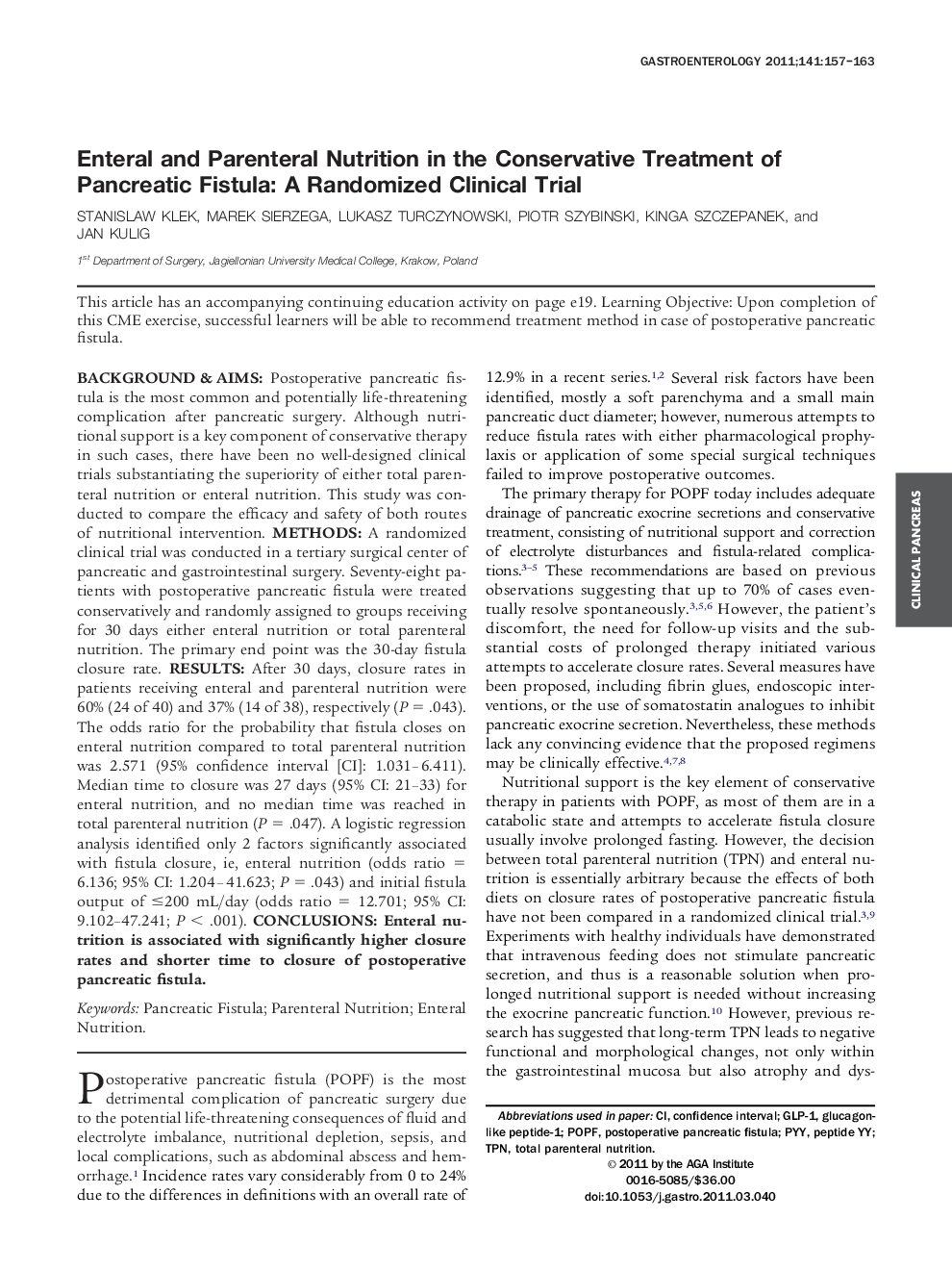| Article ID | Journal | Published Year | Pages | File Type |
|---|---|---|---|---|
| 6096728 | Gastroenterology | 2011 | 8 Pages |
Background & AimsPostoperative pancreatic fistula is the most common and potentially life-threatening complication after pancreatic surgery. Although nutritional support is a key component of conservative therapy in such cases, there have been no well-designed clinical trials substantiating the superiority of either total parenteral nutrition or enteral nutrition. This study was conducted to compare the efficacy and safety of both routes of nutritional intervention.MethodsA randomized clinical trial was conducted in a tertiary surgical center of pancreatic and gastrointestinal surgery. Seventy-eight patients with postoperative pancreatic fistula were treated conservatively and randomly assigned to groups receiving for 30 days either enteral nutrition or total parenteral nutrition. The primary end point was the 30-day fistula closure rate.ResultsAfter 30 days, closure rates in patients receiving enteral and parenteral nutrition were 60% (24 of 40) and 37% (14 of 38), respectively (P = .043). The odds ratio for the probability that fistula closes on enteral nutrition compared to total parenteral nutrition was 2.571 (95% confidence interval [CI]: 1.031-6.411). Median time to closure was 27 days (95% CI: 21-33) for enteral nutrition, and no median time was reached in total parenteral nutrition (P = .047). A logistic regression analysis identified only 2 factors significantly associated with fistula closure, ie, enteral nutrition (odds ratio = 6.136; 95% CI: 1.204-41.623; P = .043) and initial fistula output of â¤200 mL/day (odds ratio = 12.701; 95% CI: 9.102-47.241; P < .001).ConclusionsEnteral nutrition is associated with significantly higher closure rates and shorter time to closure of postoperative pancreatic fistula.
